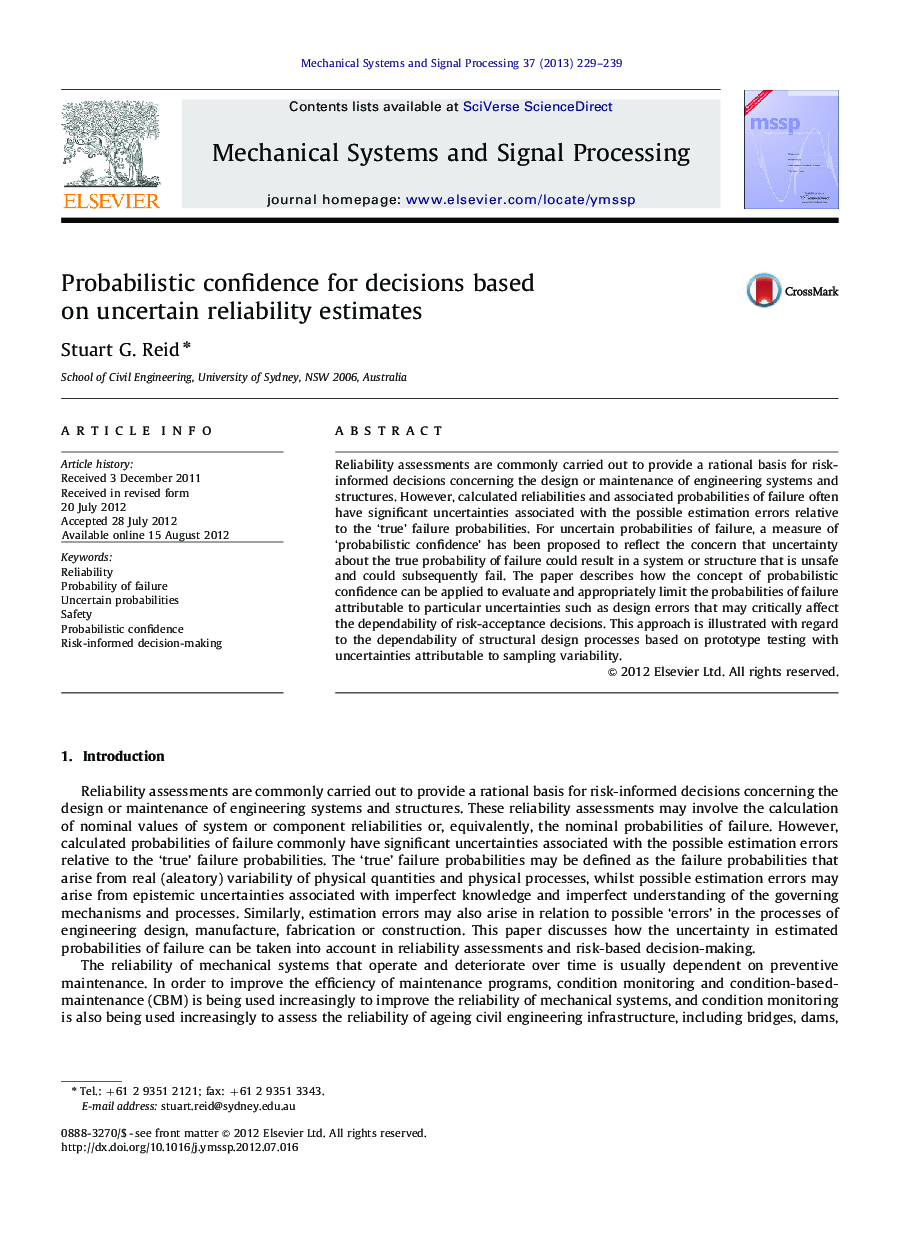| Article ID | Journal | Published Year | Pages | File Type |
|---|---|---|---|---|
| 561267 | Mechanical Systems and Signal Processing | 2013 | 11 Pages |
Reliability assessments are commonly carried out to provide a rational basis for risk-informed decisions concerning the design or maintenance of engineering systems and structures. However, calculated reliabilities and associated probabilities of failure often have significant uncertainties associated with the possible estimation errors relative to the ‘true’ failure probabilities. For uncertain probabilities of failure, a measure of ‘probabilistic confidence’ has been proposed to reflect the concern that uncertainty about the true probability of failure could result in a system or structure that is unsafe and could subsequently fail. The paper describes how the concept of probabilistic confidence can be applied to evaluate and appropriately limit the probabilities of failure attributable to particular uncertainties such as design errors that may critically affect the dependability of risk-acceptance decisions. This approach is illustrated with regard to the dependability of structural design processes based on prototype testing with uncertainties attributable to sampling variability.
► Reliability and probability estimates are uncertain due to possible estimation errors. ► An uncertain probability can be described by its probability distribution function. ► Probabilistic confidence quantifies the dependability of an uncertain probability. ► High probabilistic confidence is required when using uncertain probability estimates.
